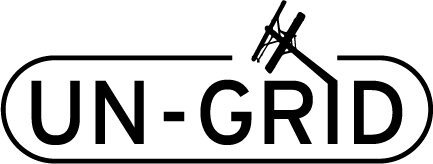Insuring Your Off-Grid Property
If you own an off-grid home, you know how important it is to have the right insurance coverage to protect your investment. Many homeowners are surprised to learn that insuring an off-grid home can be different from insuring a traditional home. In this blog post, we'll explore some of the key considerations when it comes to insuring an off-grid home.
What is Off-Grid Home Insurance?
Off-grid home insurance is a specialized type of insurance policy designed to cover homes that are not connected to public utilities such as water, sewer, and electricity. This type of insurance is different from traditional home insurance policies, as it covers the unique risks associated with living off-grid, such as alternative heating sources, renewable energy systems, and water sources.
Coverage Options for Off-Grid Homes
When it comes to insuring an off-grid home, there are several types of coverage to consider, including:
1. Property Damage: This coverage protects your home and property in case of damage or loss due to natural disasters, fires, theft, or vandalism.
2. Liability: Liability coverage protects you in case someone is injured while on your property.
3. Renewable Energy: Renewable energy coverage provides protection for your solar panels, wind turbines, or other alternative energy systems.
4. Water Supply: Water supply coverage protects your well or other water sources in case of contamination or damage.
5. Emergency Evacuation: This coverage provides reimbursement for expenses related to an emergency evacuation due to a natural disaster or other unforeseen circumstances.
Factors Affecting Insurance Premiums
Several factors can affect the cost of insuring an off-grid home, including:
1. Location: The location of your home can affect the cost of insurance, as some areas are more prone to natural disasters or other risks.
2. Construction: The type of construction used for your home, such as wood or concrete, can affect the cost of insurance.
3. Alternative Energy Systems: The type and age of your alternative energy systems can affect the cost of insurance.
4. Water Sources: The source and quality of your water can affect the cost of insurance.
5. Emergency Access: The accessibility of your home in case of an emergency can affect the cost of insurance.
We have found that some insurance providers are more willing to cover off grid properties with remote monitoring capabilities. Make sure to read out blog post about that coming soon!
Insuring an off-grid home requires specialized coverage that takes into account the unique risks associated with living off-grid. It's essential to work with an insurance provider who understands the unique needs of off-grid homeowners and can provide comprehensive coverage for your property. By understanding the factors that affect insurance premiums and exploring coverage options, you can protect your off-grid home and investment for years to come.

